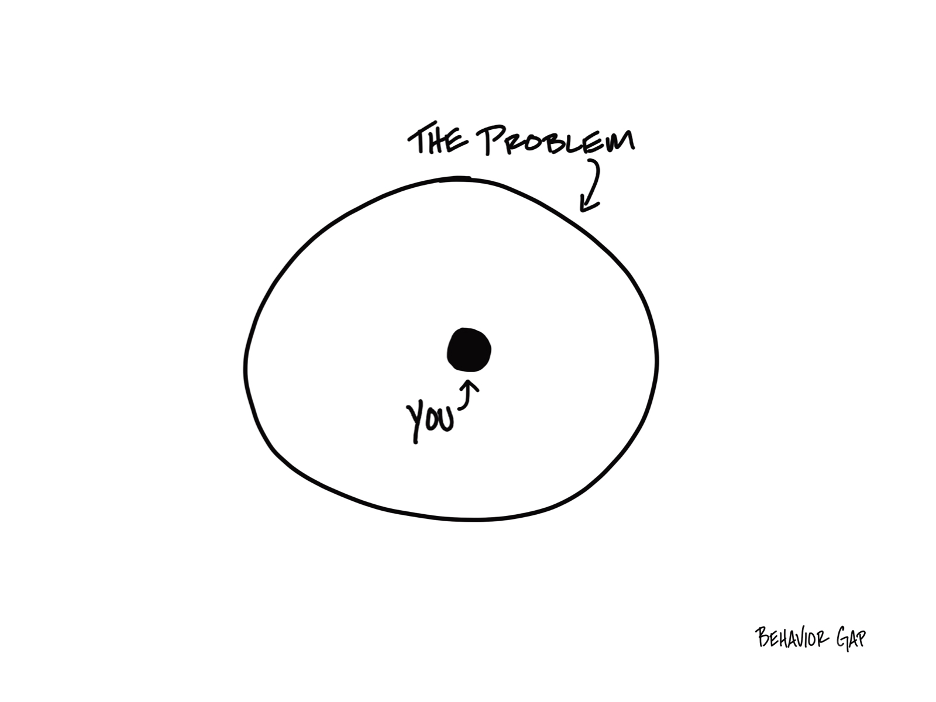Psychological Flexibility and You


Amar Pandit
A respected entrepreneur with 25+ years of Experience, Amar Pandit is the Founder of several companies that are making a Happy difference in the lives of people. He is currently the Founder of Happyness Factory, a world-class online investment & goal-based financial planning platform through which he aims to help every Indian family save and invest wisely. He is very passionate about spreading financial literacy and is the author of 4 bestselling books (+ 2 more to release in 2020), 8 Sketch Books, Board Game and 700 + columns.
August 29, 2025 | 3 Minute Read

In psychology, there is a concept called psychological flexibility.
It is the ability to respond to obstacles successfully while continuing to move toward your chosen goals, even when the path is emotionally tough.
It means you acknowledge and accept your emotions. You do not pretend they are not there. But you also do not let them control you.
For financial professionals, this is more than a theory. It is a survival skill.
Markets will rise and fall. Clients will sometimes make impulsive decisions. Regulators will change rules. Competitors will try to lure away your clients. These events will trigger emotions such as frustration, fear, anger, self-doubt.
The easy reaction is to let those emotions take the driver’s seat. To panic when clients panic. To abandon your process because the noise is too loud. To take shortcuts because the long game suddenly feels hard.
Psychological flexibility is about doing the opposite.
You feel the fear but still follow your plan. You hear the noise but stay committed to your clients’ long-term interests. You acknowledge the frustration but still make the next right call.
Think about it like a seasoned marathon runner. Midway through the race, their legs hurt. Their lungs burn. The weather changes. The crowd starts disappearing. They do not deny these challenges. But they keep moving toward the finish line because they know why they started.
In your work, your “finish line” is your clients’ success. It is their financial security. Their ability to live the life they have imagined.
When you practice psychological flexibility, you stop letting temporary discomfort dictate permanent decisions. You focus on what matters, even when it is hard.
That is how you become the kind of financial professional your clients can trust. Not because you never face challenges. But because you keep moving forward, no matter what.
Similar Post
Nano Learning
The Ultimate Edge
Derek Sivers wrote– “Mastery is the best goal because the rich can't have it, the impatient can't rush it, the privileged can't inherit it, and nobody can steal it. You can onl ....
Read More
28 March, 2025 | 2 Minute Read
Nano Learning
The Heaviest Things in Life
What’s weighing you down?
It’s not iron. It’s not gold.
It’s the unmade decisions in your life.
As a financial professional, you know how important decisions are for your c ....
Read More
3 January, 2025 | 2 Minute Read
Nano Learning
The Intellectual Poison
Do you know what intellectual poison is or what this looks like?
In our world, it comes in the form of forecasts, research reports, articles, books, seminars, webinars, tweets, vid ....
Read More
3 March, 2023 | 2 Minute Read
Nano Learning
The Billionaires’ Blueprint: Acting Now to Shape the Next Decade
The reason you are seeing success today is because of something you did 10 or 15 years ago. You planted a seed then...It’s now grown into a tree. Isn’t it right?
2 February, 2024 | 2 Minute Read
Nano Learning
The way to handle an important prospect conversation
“I need time to think” is a centuries old excuse people use, when they cannot decide. Have you come across a prospect who tells you “I need time to think”? Do you think the ....
Read More
30 October, 2020 | 2 Minute Read



- 0
- 0



0 Comments